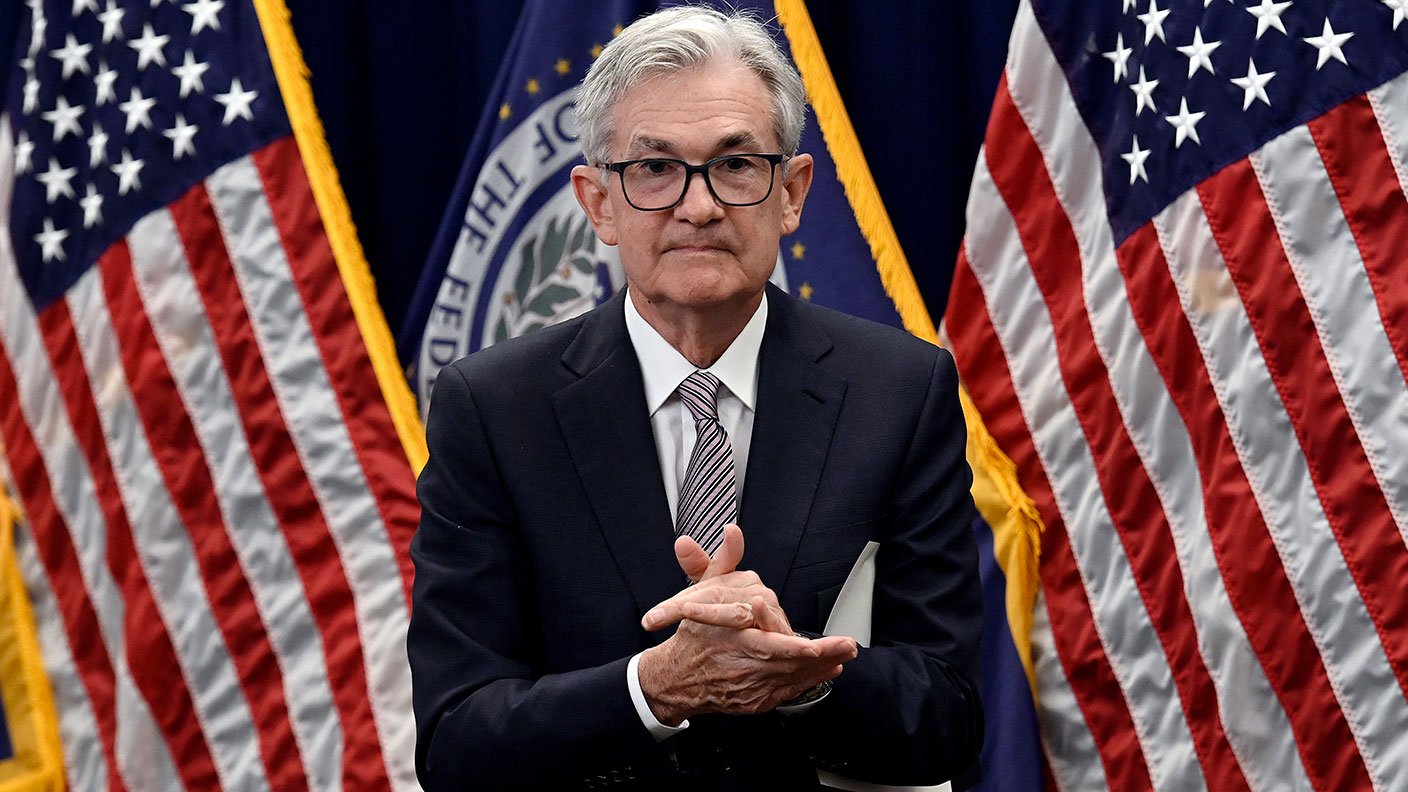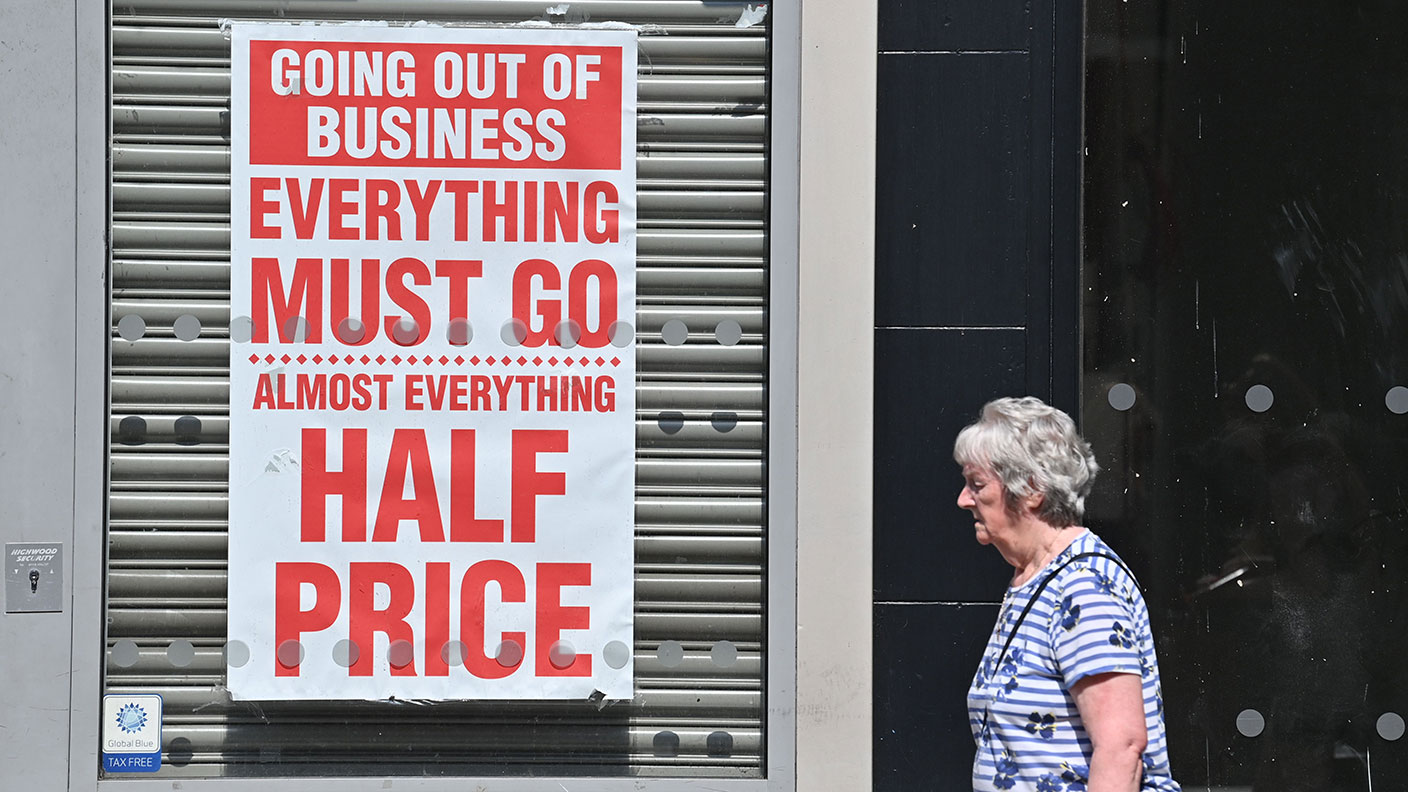Should you follow insiders into stocks?
Before you rush in to investments on the basis that ‘insiders’ are buying, bear in mind three crucial tests, says Tim Bennett.
Get the latest financial news, insights and expert analysis from our award-winning MoneyWeek team, to help you understand what really matters when it comes to your finances.
You are now subscribed
Your newsletter sign-up was successful
Want to add more newsletters?

Twice daily
MoneyWeek
Get the latest financial news, insights and expert analysis from our award-winning MoneyWeek team, to help you understand what really matters when it comes to your finances.

Four times a week
Look After My Bills
Sign up to our free money-saving newsletter, filled with the latest news and expert advice to help you find the best tips and deals for managing your bills. Start saving today!
Stockmarkets have been in defensive mode since Federal Reserve chairman Ben Bernanke hinted that quantitative easing (money printing) might be coming to an end. Yet, as Mark Hulbert notes on Marketwatch.com, "the recent actions of certain corporate insiders provide reasons for hope".
However, he warns that before you rush off to buy stocks, you have to make sure you know which insiders are doing the buying.
According to Vickers Weekly Insider Report from Argus Research, as a group insiders have recently been dumping five times as many stocks as they have bought. Not exactly bullish behaviour. But as Nejat Seyhun, professor at the University of Michigan, notes, not all insiders are equal.
MoneyWeek
Subscribe to MoneyWeek today and get your first six magazine issues absolutely FREE

Sign up to Money Morning
Don't miss the latest investment and personal finances news, market analysis, plus money-saving tips with our free twice-daily newsletter
Don't miss the latest investment and personal finances news, market analysis, plus money-saving tips with our free twice-daily newsletter
For instance, as well as including company directors (who in theory know more about the prospects for their firms than anyone, and are thus worth watching), the definition often also includes large institutions with block holdings. These exhibit "little ability to forecast where their firm's shares are headed". Strip them out and the market is finely balanced between buyers and sellers, and company directors are most optimistic in the energy, industrials and financials sectors.
But before you rush off to buy these sectors, bear in mind my colleague Bengt Saelensminde's three tests. First, check whether the buy is chunky compared to the director's salary (in other words, is it a significant purchase, or is the director just doing a bit of window dressing?).
Second, check how big it is relative to their overall holding (again, this will show you how significant the move is).
Lastly, look to see whether other directors have been buying as well. A yes' to all three is a good sign. For example, the chairman of Prudential (LSE: PRU) doubled his stake following the recent price dip, and was joined by two other senior directors. That makes the stock well worth closer investigation.
Get the latest financial news, insights and expert analysis from our award-winning MoneyWeek team, to help you understand what really matters when it comes to your finances.
Tim graduated with a history degree from Cambridge University in 1989 and, after a year of travelling, joined the financial services firm Ernst and Young in 1990, qualifying as a chartered accountant in 1994.
He then moved into financial markets training, designing and running a variety of courses at graduate level and beyond for a range of organisations including the Securities and Investment Institute and UBS. He joined MoneyWeek in 2007.
-
 Should you buy an active ETF?
Should you buy an active ETF?ETFs are often mischaracterised as passive products, but they can be a convenient way to add active management to your portfolio
-
 Power up your pension before 5 April – easy ways to save before the tax year end
Power up your pension before 5 April – easy ways to save before the tax year endWith the end of the tax year looming, pension savers currently have a window to review and maximise what’s going into their retirement funds – we look at how
-
 How a dovish Federal Reserve could affect you
How a dovish Federal Reserve could affect youTrump’s pick for the US Federal Reserve is not so much of a yes-man as his rival, but interest rates will still come down quickly, says Cris Sholto Heaton
-
 What does the latest inflation shocker from the US mean for your money?
What does the latest inflation shocker from the US mean for your money?Analysis US inflation has hit another fresh 40-year high and it’s unlikely to be going away any time soon, despite the best efforts of the Federal Reserve. With markets already predicting a recession, John Stepek explains what it all means for you.
-
 Liz Ann Sonders: raging inflation and the bear market is not “70s redux”
Liz Ann Sonders: raging inflation and the bear market is not “70s redux”Podcasts Merryn talks to Liz Ann of Charles Schwab about how today’s raging inflation and bear market came about, what to do, and why it’s not like the 1970s stagflation, or the the 2007-2008 crash.
-
 Protecting your wealth from inflation won’t be easy – here’s what to do
Protecting your wealth from inflation won’t be easy – here’s what to doOpinion US inflation hit a fresh 40-year high last week. That sent markets into a spin over fears of interest rates rising more quickly than expected. John Stepek explains what you should do to protect your wealth.
-
 Recession talk is a red herring – here’s what investors should focus on instead
Recession talk is a red herring – here’s what investors should focus on insteadAnalysis There is a lot of talk of impending recession. But that’s not something you should worry too much about, says John Stepek. What’s more important is that the world is changing – and you need to change the way you invest.
-
 Which mistake will central bankers choose to make next?
Which mistake will central bankers choose to make next?Editor's letter The heads of the Bank of England and the US Federal Reserve have choices – but none of them are good choices, says Merryn Somerset Webb.
-
 Too embarrassed to ask: what is tapering?
Too embarrassed to ask: what is tapering?Videos Tapering is the reduction in quantitative easing provided by a central bank. But how does it work?
-
Why investment forecasting is futile
Opinion Every year events prove that forecasting is futile and 2020 was no exception, says Bill Miller, chairman and chief investment officer of Miller Value Partners.